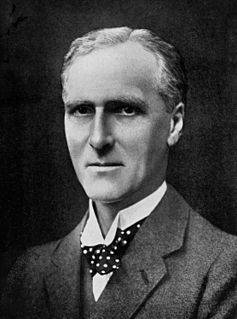A Quote by Ralph Waldo Emerson
The riddle of the age has for each a private solution.
Related Quotes
But the solution to the riddle of life and space and time lies outside space and time. For, as it should be abundantly clear by now, nothing inside a frame can state, or even ask, anything about that frame. The solution, then, is not the finding of an answer to the riddle of existence, but the realization that there is no riddle. This is the essence of the beautiful, almost Zen Buddhist closing sentences of the Tracticus: "For an answer which cannot be expressed the question too cannot be expressed. The riddle does not exist."
Each pursues his private interest and only his private interest; and thereby serves the private interests of all, the general interest, without willing it or knowing it. The real point is not that each individual's pursuit of his private interest promotes the totality of private interests, the general interest. One could just as well deduce from this abstract phrase that each individual reciprocally blocks the assertion of the others' interests, so that, instead of a general affirmation, this war of all against all produces a general negation.
The scientist is not much given to talking of the riddle of the universe. "Riddle" is not a scientific term. The conception of a riddle is "something which can he solved." And hence the scientist does not use that popular phrase. We don't know the why of anything. On that matter we are no further advanced than was the cavedweller. The scientist is contented if he can contribute something toward the knowledge of what is and how it is.
I grant this mode of secluding boys from the intercourse of private families has a tendency to make them scholars, but our business is to make them men, citizens, and Christians. The vices of young people are generally learned from each other. The vices of adults seldom infect them. By separating them from each other, therefore, in their hours of relaxation from study, we secure their morals from a principal source of corruption, while we improve their manners by subjecting them to those restraints which the difference of age and sex naturally produce in private families.






































